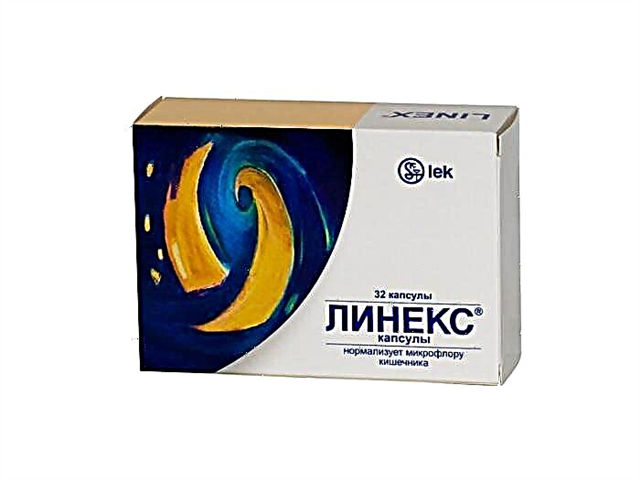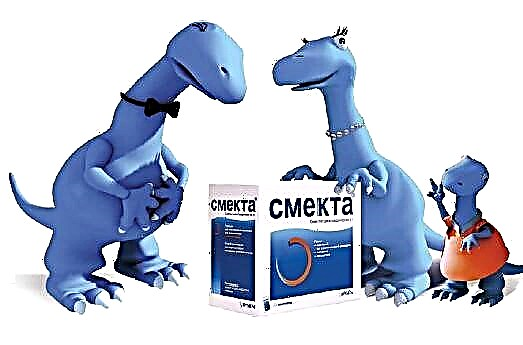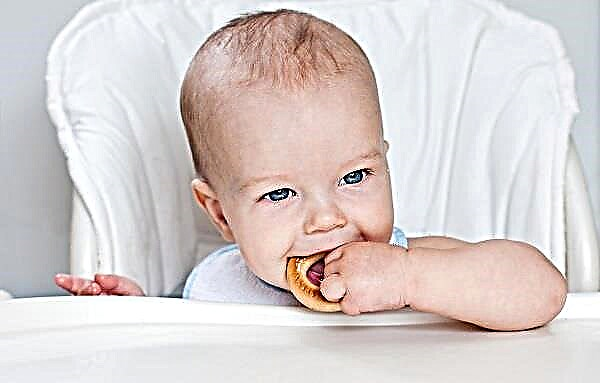
A child's cough is a problem for the whole family. Often parents of three-year-olds are interested in whether it is possible to cure this ailment at home with folk remedies, which mothers and fathers, for a number of reasons, consider safer for the child than pharmacy syrups and tablets.
This desire is not unusual, and parents are right in their own way: syrups from pharmacists contain dyes, sugar, and not all children tolerate it well. However, do not delude yourself and believe that folk recipes can completely replace traditional medicines. Of course not, but they make it possible to alleviate the child's condition and speed up recovery.
The main mistake of moms and dads is to believe that folk remedies are completely harmless to children. In fact, as with the use of tablets and mixtures, when treating with “grandmother's” recipes, it is important to observe the proportions, dosage, and also know when it is possible and when not to take folk remedies for coughing. We will talk about this in more detail.

Determine the type of cough
Before starting the treatment of a child's cough, parents must find out a number of very important questions necessary for the correct choice of a method of therapy and remedy. First, you need to try to understand what causes this unconditioned reflex, which, as you know, is not an independent disease.
In children, 90% of coughs are caused by a viral infection such as influenza or SARS.
A relatively small percentage of babies suffer from an allergic reflex caused by irritation to an external or internal antigen (this can be either an allergy to a blossoming poplar, or a reaction to polluted air, vapors of chemicals, household chemicals that are used in an apartment, etc.).
Impressive kids with a "fine mental organization" can suffer from a nervous cough after the stress they have experienced, and curious three-year-olds who like to take everything apart into nuts and bolts can accidentally inhale some small foreign body. By the way, this reason is not uncommon, as it might seem at first glance.
According to statistics, in 40% of toddlers and a little older, when examined to find the cause of a prolonged cough using bronchoscopy, crumbs from solid food or small parts from toys were found in the airways.
It is clear that it is rather difficult to find the exact cause of the cough at home. That is why I will not tire of repeating that a doctor should make a diagnosis, but parents can choose a method of treatment on their own, pediatricians are always ready to discuss this with their patients. Thus, it is best to show a child with a cough to the doctor, and only then look for suitable folk remedies to alleviate the condition of the baby.
If, however, it is better to consult a specialist with the reason, that is, there are other criteria for coughing that parents can determine on their own. This is the duration of the symptom:
- acute (up to 2 weeks);
- protracted (more than 2 weeks);
- subacute (more than a month);
- chronic (more than 2 months).
It is also useful for moms and dads to learn how to identify the type of cough, and this is one of two things:
Wet. A productive cough characterized by sputum (bronchial secretions). After an attack of a cough reflex, the child feels better. Sometimes, with deep breathing without special medical devices, you can hear gurgling sounds in the bronchi.
Dry. Unproductive cough, harsh, with frequent and painful attacks. No phlegm is produced, therefore, after each attack of the reflex of relief, the child does not experience. Dry cough becomes more intense at night, sometimes accompanied by severe hoarseness, coarsening of the voice and is called in this case "barking".


It should be noted that with viral infections, as a rule, the cough is initially dry. With improper therapy or untreated, it can go wet.
Some doctors tend to view a wet cough as the second stage of the disease, quite natural. Be that as it may, the type of cough should be known in order for the treatment to be adequate.
With a wet cough give expectorant medicines and traditional medicine, which have the ability to quickly remove phlegm from the bronchi, prevent its accumulation and thickening.
With a dry cough the goal of therapy is to reduce the intensity of the cough reflex. For these purposes, antitussive drugs and traditional medicine recipes are used, which have such an effect.
It is unacceptable to use both those and other drugs at the same time. This will cause a deterioration in the condition and the development of strong inflammatory processes in the respiratory organs.
When you can't do with only folk methods?
It is quite difficult to cure a cough with folk remedies; it is wiser to use them as an auxiliary therapy in combination with medicines prescribed by a doctor. This approach will be most appropriate when treating cough caused by viral infections.
However, do not forget that there are conditions and diseases that it is strictly forbidden to treat only with folk remedies. So, cough sometimes accompanies diseases of the cardiovascular system, gastrointestinal tract as a symptom; it may be the only sign of tuberculosis and other dangerous ailments. If in this situation the child is treated only for coughing, and with folk remedies that do not eliminate the causes of this very cough, then the child can be brought to disability or death.
The use of alternative recipes for alternative medicine requires from parents more responsibility and rationality than therapy with pharmaceutical pharmaceutical preparations prescribed by a doctor.
“Grandmother's” recipes alone cannot be dispensed with, if in a child's sputum we notice impurities of blood or pus, if he has bad breath, if a coughing attack ends in vomiting, if the cough has a protracted character, if there are no other symptoms besides him, not noticeable.

The use of alternative recipes for alternative medicine requires more responsibility and rationality from parents than therapy with pharmaceutical drugs prescribed by a doctor.
“Grandmother's” recipes alone cannot be dispensed with, if in a child's sputum we notice impurities of blood or pus, if he has bad breath, if a coughing attack ends in vomiting, if the cough has a protracted character, if there are no other symptoms besides him, not noticeable.


Effective folk remedies and methods
For children over three years old, traditional medicine offers a fairly wide selection of effective recipes. From this age, honey, lemons can be introduced into the diet, and herbal preparations, which in themselves are quite allergenic, can be given. Thus, the parents of such children have the opportunity to try different methods, such an opportunity is completely deprived of mothers and fathers of children under one year old.
Egg drink
Ingredients: a glass of boiled milk of any fat content, a tablespoon of honey, a tablespoon of butter, 1 chicken egg, soda. Separate the yolk from the protein, grind and add baking soda on the tip of a knife. Add butter and honey to hot milk, cool slightly and gently pour the yolk and soda. Drink a quarter cup three times a day with a wet cough.
Lemon-honey-glycerin
Ingredients: 1 lemon, two tablespoons of glycerin, liquid honey. The lemon is washed, and several punctures are made on the peel, and then dipped in boiling water for five minutes. After that, it will be easy to get juice from the lemon. Glycerin is added to it, everything is poured into a glass and filled to the top with liquid honey. The agent should be infused for about 3-4 hours. Children over 3 years old are given a teaspoon three times a day half an hour before meals.

Onion
Ingredients: 2-3 medium-sized onions, 0.5 liter milk, a tablespoon of honey. The onion must be chopped and boiled in milk until soft. Filter the broth and add chalk to it. Children from 3 years old are given a tablespoon every 3 hours until the intensity of dry cough decreases.

Pine nuts
Ingredients: 1 cedar cone or 100 gr. Unpeeled pine nuts, liter of milk. It is simple to prepare a drink - a lump or nuts need to be boiled in milk over low heat for 40 minutes. Give the child the resulting liquid 2 tablespoons warm 5 times a day.

Currant
Ingredients: 200 grams of black currants (fresh or thawed), a teaspoon of honey. Juice is squeezed out of berries, mixed with honey. Give the child a teaspoon 4-5 times a day. The remedy helps with dry, unproductive cough.

Curd compress
Ingredients: 300 gr of granular cottage cheese, cheesecloth, cling film. Spread the cottage cheese on cheesecloth, cover the top with its second end. A compress is spread on the child's chest, covered with cling film and wrapped on top with a woolen scarf or shawl. The compress can be left overnight.

Mustard compress
Ingredients: mustard powder (10g). Dry compress for coughing is done on the legs. Mustard powder is poured into woolen socks, put on the child's legs for 2-3 hours. The remedy is effective for dry and unproductive coughs. Tortillas based on mustard, honey, vegetable oil and flour can be applied warm to the chest for 2-4 hours.

Tips
Treatment will be more effective and safer for the child if mom and dad know several important nuances of home cough therapy:
Create the right microclimate. The bronchial secretion will not dry out, and the risk of severe inflammatory processes in the respiratory organs will be significantly reduced if you monitor the air temperature in the apartment where the child lives and the humidity in it.
Optimal for a quick recovery and further prevention of cough is the air temperature in the room not lower than 18 and not higher than 20 degrees. Humidity - 50-70%. To humidify the air, use a special device - a humidifier, and if it is not there, hang wet towels on the batteries and make sure that they do not dry out.
- Ventilate and damp the baby's room daily. If the baby has an allergic cough, do not use household chemicals containing chlorine, make sure that dust does not accumulate in the apartment, so that the child's things are washed only with baby powder. You also need to collect and discard any cheap toys of unknown origin that may be toxic.
- Follow your drinking regimen. It is important to give your child as much warm drink as possible during cough treatment. This is done in order to protect the mucous membranes of the respiratory system from drying out, and drinking contributes to the dilution and excretion of phlegm. Avoid sodas and liquids that are too cold (this can cause vasospasm). It is best to cook dried fruit compote for your baby, make green tea, give herbal teas, rosehip decoction, fruit drinks. Warm drinking helps to reduce the cough reflex and expectoration.
- Limit the use of compresses and inhalation. These procedures, so beloved by many parents, can seriously harm a child's health if not done according to the rules. Inhalation and warming wet compresses are strictly prohibited if the cough proceeds against a background of increased body temperature. This can cause a violation of heat transfer in a child and cause severe and extensive inflammatory processes.
- Do not inhale with hot steam, in the old fashioned way forcing the child to breathe over a pot of boiling water or potatoes. This can cause burns of the mucous membranes of the nasopharynx, larynx, bronchi, trachea. Use special devices - an inhaler or nebulizer.


Treatment should be comprehensive. Recovery will be faster if parents begin to use not only medicines and folk recipes, but also master vibration and drainage massage. It is simple and does not require special skills, but it effectively helps the separation and removal of bronchial mucus. Massage is based on stroking and tapping in the ribs, chest and back. But to put banks, as was customary 20-30 years ago, modern doctors do not recommend.
Change your lifestyle. With frequent illnesses and chronic coughing, the child should think about the possibility of systematic hardening of the child. A kid, even with a cough, has to walk a lot. During treatment, do not limit his mobility, running, exercising, sports and just active games contribute to more frequent inhalation-exhalation, which means that they additionally stimulate the discharge of phlegm.
Perform psychosomatic correction. It is no secret that all diseases, in addition to the main pathogen, have a close connection with the psychological state of the child.
If the cough does not go away for a long time and does not respond to any methods of treatment, in addition to a pediatrician and an ENT specialist, visit a child psychologist who will help you figure out what psychosomatic prerequisites for the illness the child has, and will also give recommendations for their elimination.



